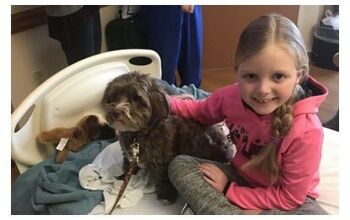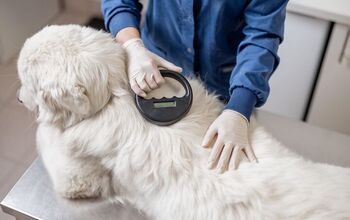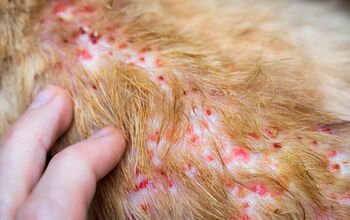Dog Detects Early-Stage Lung Cancer With Incredible Accuracy

In a controlled study that included air samples from 30-patients who had solitary pulmonary nodules (SPN)–25 of whom had stage 1A Lung Cancer, mixed with 77 control air samples that were from healthy patients as well as those with pulmonary disease, a trained Labrador Retriever named Blat was able to detect patients who had the lung cancer with a high degree of accuracy.
Related: Dog Gets New 3D-Printed Skull After Battling Cancer
None of the samples had any treatment and the participants of the study did not eat, drink or smoke for 30 minutes before they blew into a crystal tube. The tube was put in an open box that had an open side so that Blat could smell them.
Blat attempted to smell variations of breath sample combinations that included cancer positive, healthy and obstructive lung disease 900 times. In an astonishing result, Blat chose to sit correctly by the malignant samples 879 times. Of the 30 patients with SPN, he was able to correctly identify 27. Once Blat identified samples, his results were compared with final pathology reports. Blat’s response rates had a predictive positive value of 0.97 and predictive negative value of 0.99.
The researchers trained Blat using a progressive prize-dependent methodology. He was given breath samples that were from those with and without the nodules, and he was rewarded when he detected the SNP samples.
Study author Dr.Guiaro said that because trained dogs can accurately identify malignant SPN, they can be included in ways to manage diagnoses in patients. Blat proved that the exhaled breath gas of patients with lung cancer is distinct in odor, and they are now challenged to look at how to identify consistently with appropriate technology. She believes that dogs can be significantly helpful in lung cancer screening programs.
Related: Researchers to Study if Dogs Can Detect Prostate Cancer
Dr. Guirao said that because more than 75% of lung cancer patients are diagnosed when the disease has gone past a point of care opportunity, early screening can make a big difference in treatment rates.
Training Blat took about five months, Dr. Guiaro said and the beauty in dogs for assessment is that almost any dog (except plane snout dogs) can be trained to screen.

More by Lori Ennis























